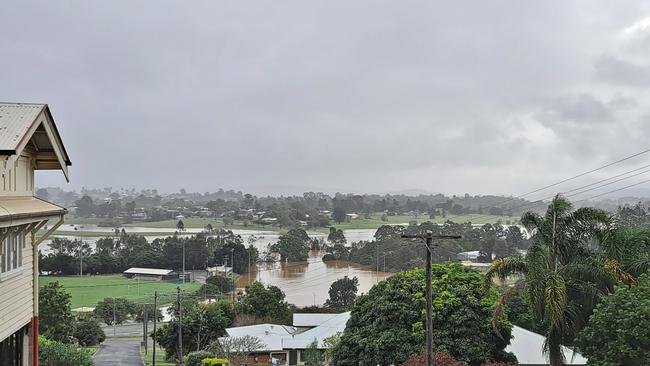NRMA wild weather data reveals Bundaberg, Hervey Bay, Gympie worst hit
New data from major insurer NRMA has revealed which parts of Gympie, Maryborough and Bundaberg were worst hit by severe weather in Autumn, and a surprising shift in people’s attitude towards preparing for it.
Bundaberg
Don't miss out on the headlines from Bundaberg. Followed categories will be added to My News.
Bundaberg North was the most impacted region in the Wide-Bay from this year’s wild autumn weather, although its residents are becoming less prepared to deal with it.
New data released by NRMA insurance showed that Queensland experienced its wildest autumn since cyclone Debbie in 2017, with Bundaberg North receiving the brunt of the severe weather which hit the Wide Bay.
Gympie and Hervey Bay were the next worst off areas for weather damage-related claims.
The wild weather tracker found Wide-Bay residents are feeling less prepared for wild weather than they have in the past.
Wide Bay residents graded themselves 66 on a preparedness scale, which scaled from 1 (not prepared at all) to 100 (as prepared as I can be).
This was three points lower than their assessment in the at the start of the year, placing them fifth out of seven regional areas.
This placed them behind Far North Queensland, North Queensland, Darling Downs, Central Queensland and the Sunshine Coast.

Seventy-five per cent of Queensland participants in the tracker also stated that they believe climate change is making natural disasters more severe and more frequent.
A rise in natural disasters, and the impact of more wild weather is at the forefront of Queenslanders worries with 74 per cent worried that natural disasters are becoming more frequent.
Of the 1571 severe weather claims made in Queensland, 89 per cent were related to storm damage.
NRMA Insurance executive general manager Luke Gallagher said this year’s weather was likely to recur and residents needed to be prepared.
“The impacts of a changing climate means that wild weather will continue to be a fact of life,” Mr Gallagher said.
“ As individuals, we are not powerless.
“Every household can play a role in understanding how they can be better prepared for severe weather.”
Mr Gallagher stated there are several things you can do to improve your home‘s preparedness for wild weather.
“This includes having an emergency plan and kit ready, but also making changes to ensure your home is safer, particularly those who live in storm or flood prone areas,” Mr Gallagher said.
Regularly cleaning gutters to stop water building up, clearing overhanging branches and other simple home maintenance actions can also reduce damage during wild weather.”




